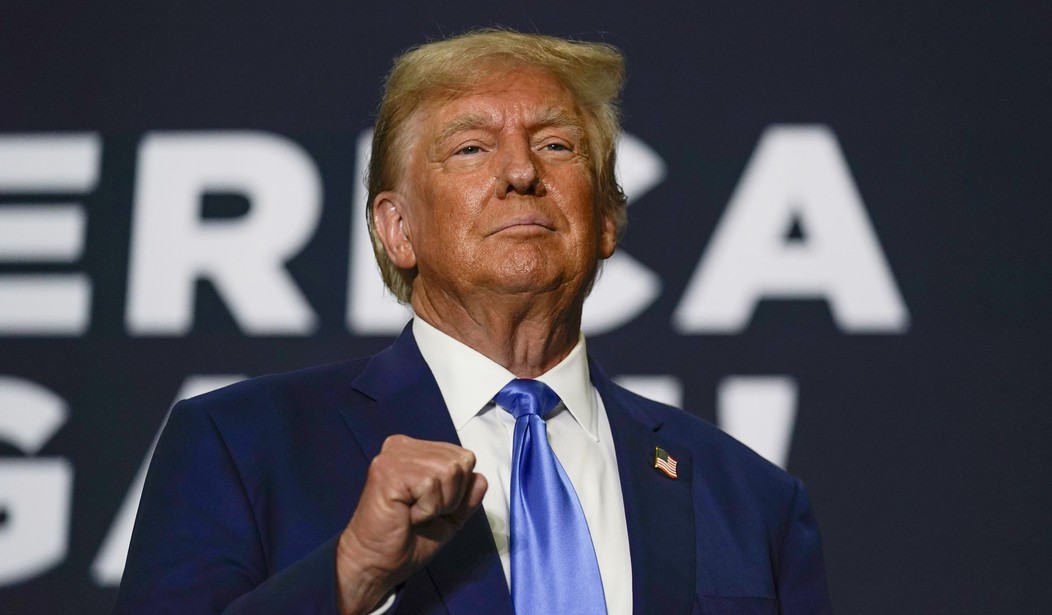As the Republican primaries/caucuses approach, former President Donald Trump seems to have a strong edge over his rivals, Florida Governor Ron Desantis and former UN Ambassador and South Carolina Governor Nikki Haley (and also over several lesser candidates). This is surprising to some – former President Trump has extremely high polling negatives, frequently resorts to “mean tweets”, and has been indicted 91 times and counting (although these indictments are all clearly political). What, they say, can possibly explain Trump’s continuing and seemingly strong edge in the primaries/caucuses?
Here is my theory – Donald Trump, the former Republican President of the United States, never stopped being the leading Republican figure, his party’s anointed former President. So, when he officially announced again in 2022, it was going to be hard to stop him.
Politics, like baseball, is a team sport. Partisans of each party become invested in their team, and in their team leaders, the presidential nominees, and especially in their Presidents. As we approach each election, partisans rally around the candidate for President, building him (or her) up and bashing the other candidate(s). Billions of dollars are used by each side to do so over the years (including both the election years and the years in office). For each side’s voters, it becomes “my candidate, right or wrong.”
After the election, one of the two major nominees becomes the President, while the other nominee (usually) fades into the woodwork, never to be heard from again.
But that didn’t happen in 2020 when President Trump was narrowly defeated. Trump had first run in 2015 and won in 2016 before his loss. In 2020, instead of conceding the election, Trump contested it and refused to leave the political arena. In 2022, he announced he was running again, although he had never really stopped running. And that is unprecedented in American politics in the modern era.
In modern times, no President has been defeated for re-election but has continued to run for President (again). We have to go back to pre-modern times when 1888 Democrat President Grover Cleveland won the popular vote re-election by a margin of more than 4,000 votes. Still, Republican Benjamin Harrison won the Electoral College vote 233 to 168, and thus the presidency. While President Cleveland had initially claimed “there was no happier man in the United States” in leaving the Presidency, as he and his wife left, the First Lady told a White House staffer: “Now, Jerry, I want you to take good care of all the furniture and ornaments in the house… for I want to find everything just as it is now when we come back again.” And Cleveland’s allies wanted him to run again as well.
Recommended
Once defeated, former President Cleveland attempted to stay out of the limelight, as was expected of him. However, the Harrison administration worked with Congress to pass the McKinley Tariff, a higher tariff, and the Sherman Silver Purchase Act, which increased the nation’s money backed by silver, both of which Cleveland deplored as dangerous to the nation's financial health. In 1891, the year before the next election, Cleveland addressed his concerns in an open letter (the equivalent of an 1890s “tweet”) to a meeting of reformers in New York. This "silver letter" thrust Cleveland's name back into the spotlight just as the 1892 election was approaching. He also sent out other letters (more “tweets”) to various Democrat officials, including this one to a Congressman, discussing the tariff question. And, in 1892, he easily won his party's nomination to run again for President, a race he eventually won.
Of course, the 1892 election was a long time ago, and it was well before the modern era of Presidential politics, with television, the internet, and radio. However, the period between the 1992 and 1996 elections provides another potential example that supports my theory. In 1992, President George H. W. Bush was defeated solidly by Bill Clinton in the electoral college and, more narrowly, 43% to 37.5% in the popular vote. Clinton won with the help of a strong third-party candidate named Ross Perot. Imagine that in 1993, former President George H. W. Bush had been incensed by his loss, which (we know) he felt was unfair, thanks to a biased media and the rogue moderate Republican (Perot) running as a spoiler candidate. Imagine that from 1993 to 1996, Bush continued to regularly criticize President Clinton on certain issues and stayed in the limelight, preparing to run again for the office he once held. (There were actually polls in this time period that showed George H. W. Bush was competitive, if not leading, Bill Clinton.) In such an alternate timeline, would George H. W. Bush won the Republican nomination in 1996? Considering that the actual winner in 1996 was Senator Bob Dole, who had a very similar profile to Bush and was (arguably) a worse candidate, Bush would probably have been the favorite for the GOP nomination. (And Dole might not have even run against Bush.)
Post-2020, Donald Trump is the former Republican President who has been running for this office since 2015. He has never conceded defeat and strongly wants to return to his former office. Over the past nine years, Republican voters have become accustomed to supporting him as their team leader. Billions of dollars have been invested in supporting him and his causes. He is, and always should have been, the obvious favorite to win another GOP nomination for the Presidency. (And when a few other candidates have risen to challenge him, he has hammered them with attacks, as has the mainstream media, which is also determined to see Trump as the Republican nominee, with his high negatives.)
This isn’t really hard to understand. Sometimes, the easiest explanation is also the correct one.

























Join the conversation as a VIP Member